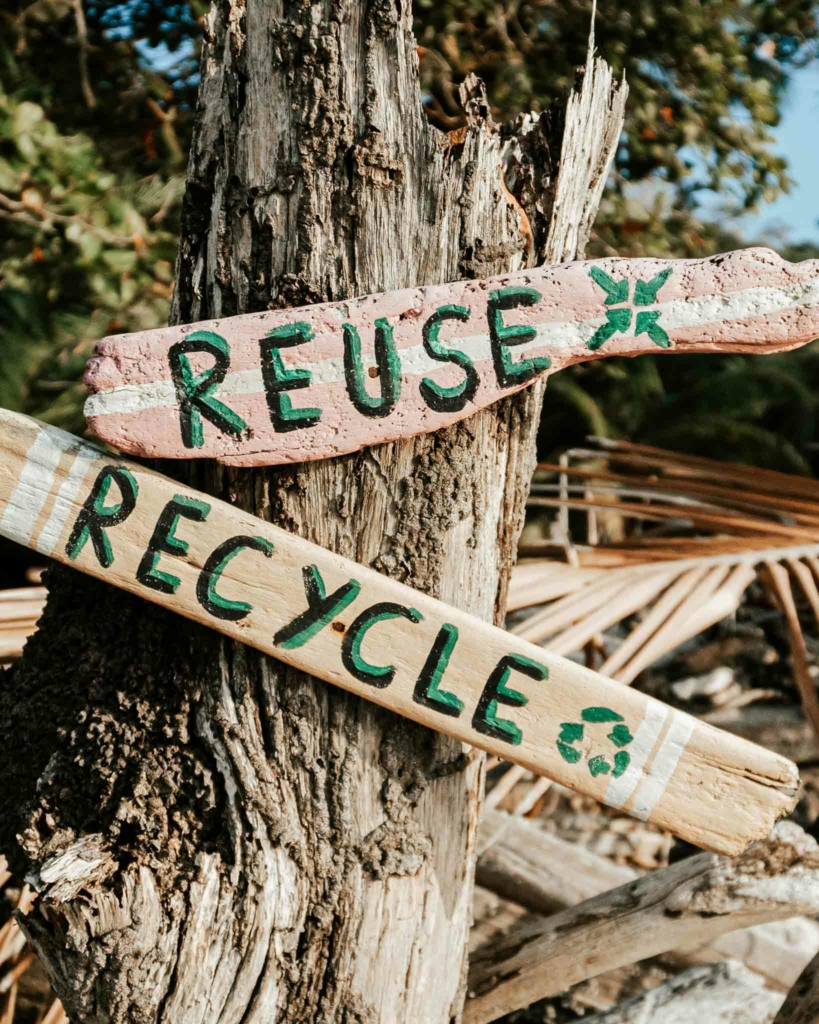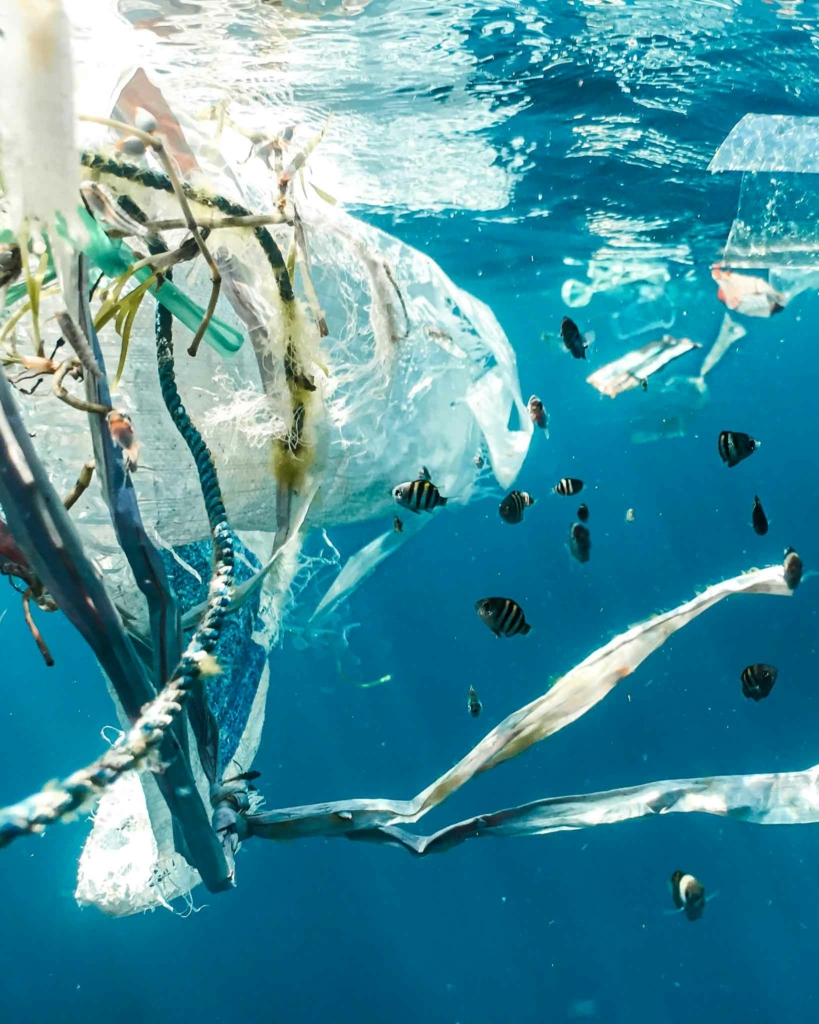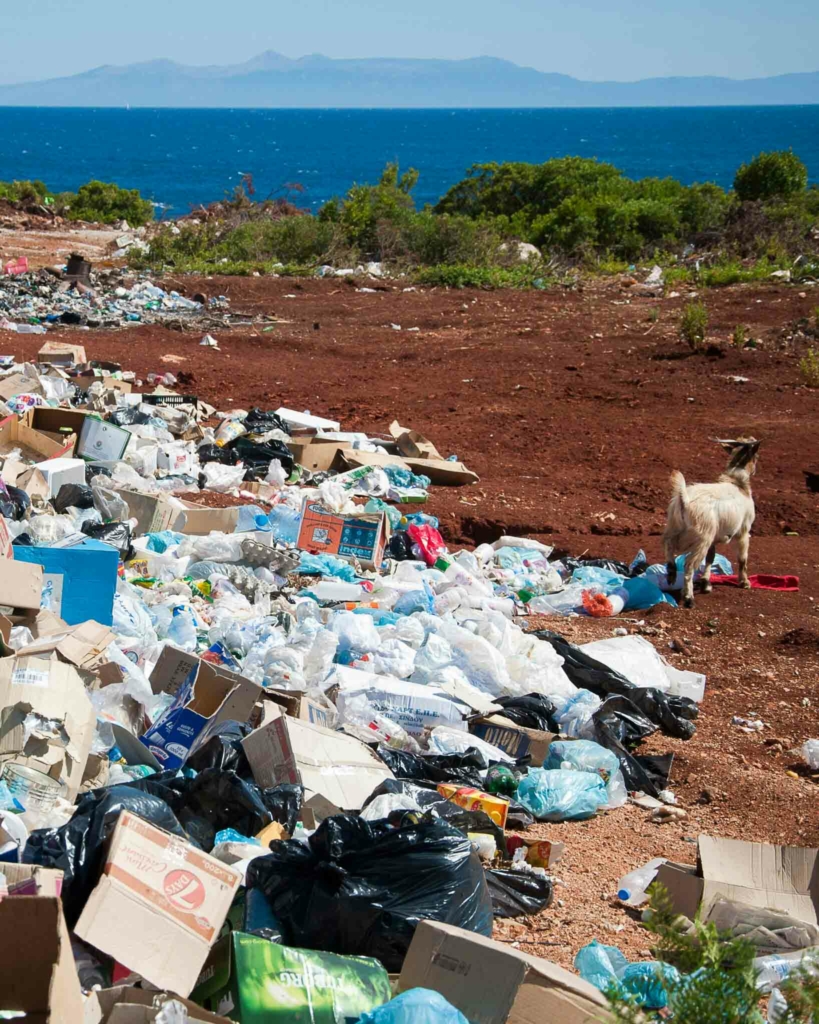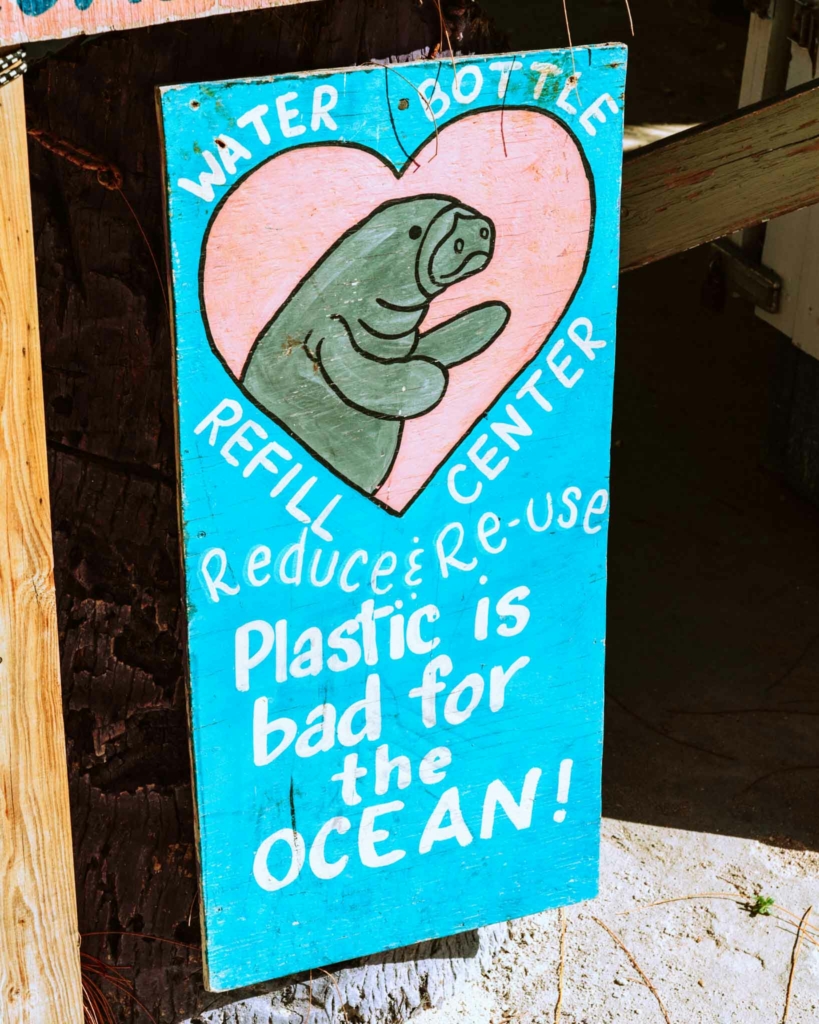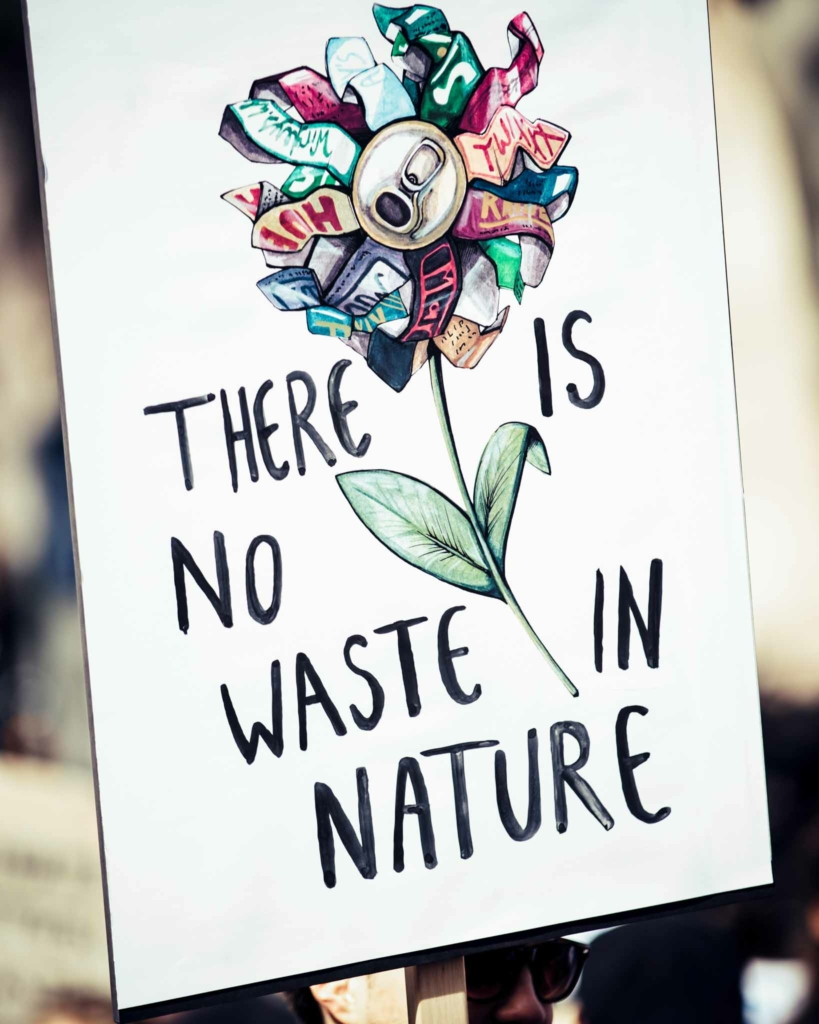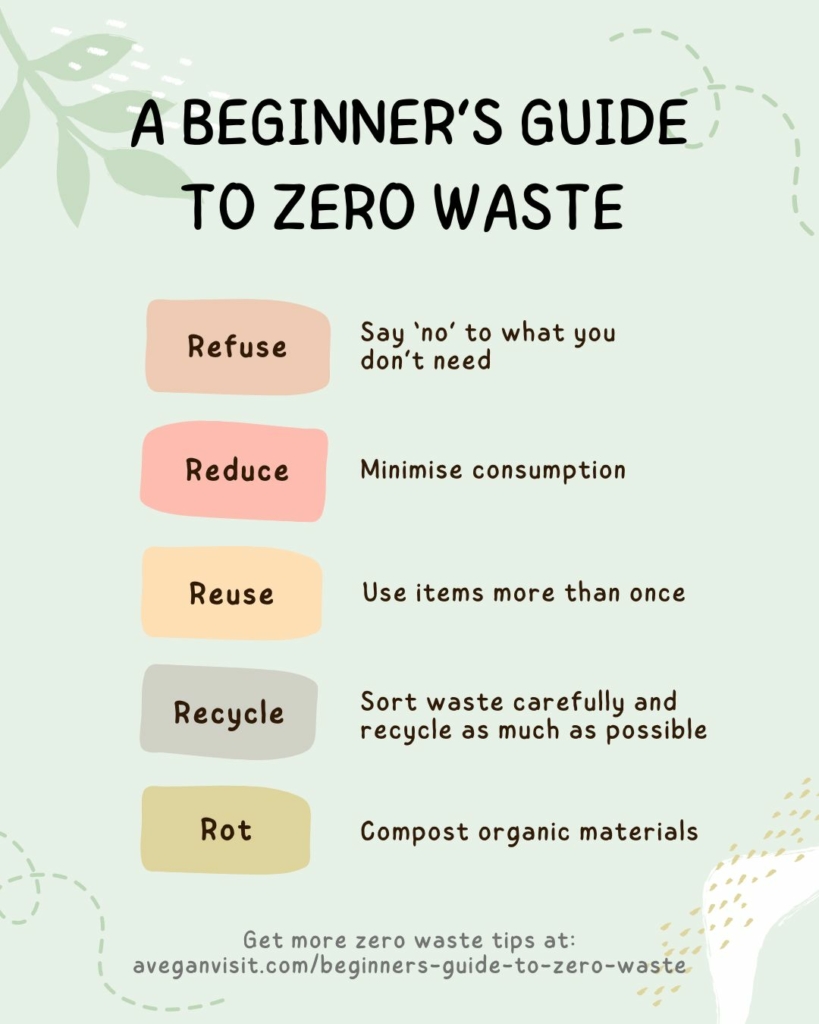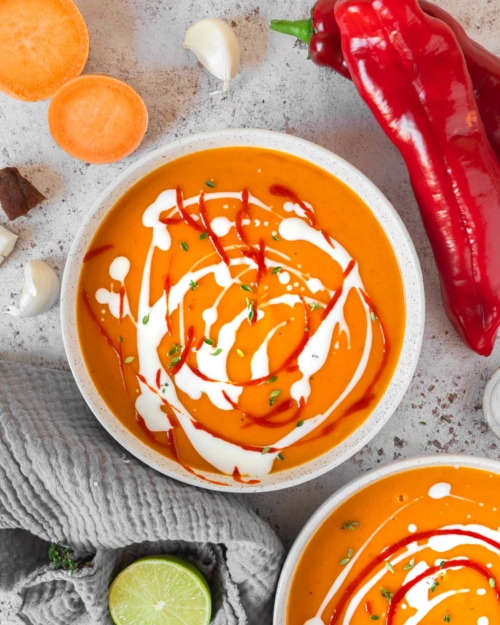What is zero waste, why is it important and how can I do my bit? This article answers these questions in simple terms. Read on for our 10 Zero Waste Tips for Beginners!
The term ‘zero waste’ can seem intimidating and unachievable.
It’s a term that implies perfection and purism.
If you’re like me, you try to do your bit. You recycle (mostly), take a reusable water bottle out with you (usually) and proudly buy your dishwashing soap in bulk.
Plagued by the thought that you need to do more, you find yourself drawn towards the world of ‘Zero Waste’… but it’s too daunting to enter.
Guess what?
the guiding principle of zero waste is to reduce waste, not to achieve perfection.
Are there advocates out there who pursue a strict zero-waste lifestyle? Absolutely (and bravo to them, truly). But for 99.9% of people, it’s a journey with varying levels of commitment.
The core idea of ‘zero waste’ is to reduce waste as much as possible. It’s more about continuous improvement and making incremental changes that add up, rather than achieving absolute perfection.
We can all take steps toward reducing waste.
So, I’ve written this guide as much for me as it is for you. I’m an ordinary person too, and there’s no judgment here. We’re all learning and growing.
My goal is to break down the concept of ‘zero waste’ into simple, practical terms, explore its benefits, and provide clear, actionable tips.
This is about inspiring small, positive changes – without feeling overwhelmed.
Let’s get started!
Quick Links:
- What is zero waste?
- Why is zero waste important?
- Zero waste at home – products, veganism and cooking!
- 10 Zero Waste Tips for Beginners
What is zero waste?
Zero waste is a philosophy that aims to eliminate waste by changing the way we produce, use and dispose of products.
Instead of following the traditional model of using and then discarding the products we use, ‘zero waste’ aims to reuse, recycle and compost products and materials, thus avoiding sending products to landfill and reducing the need for new resources.
As defined by the Zero Waste Alliance, the term ‘Zero Waste’ means “The conservation of all resources by means of responsible production, consumption, reuse, and recovery of products, packaging, and materials without burning and with no discharges to land, water, or air that threaten the environment or human health.”
What are the 5Rs of Zero Waste?
The zero waste 5r are:
- Refuse (say no to what you don’t need)
- Reduce (minimise consumption)
- Reuse (use items more than once)
- Recycle
- Rot (compost organic waste)
The Zero Waste Alliance also looks at ‘Redesign’, ‘Material Recovery’ and ‘Residuals Management’.
Is zero waste possible?
Achieving zero waste as an individual is challenging, particularly in modern life, however, it is possible to significantly reduce waste generation.
Remember, the zero waste philosophy is a set of guiding principles, focusing on improving waste reduction practices, rather than achieving perfection. One small step at a time is still movement in the right direction.
Is a zero waste society possible? Achieving a fully zero waste society may be unlikely in practice. Although research suggests it is not impossible in theory, it would require fundamental changes in production, consumption and waste management practices from governments, businesses and individuals.
Why is zero waste important?
Zero waste is important because it helps to protect the environment by reducing pollution, conserving natural resources and minimising the amount of waste sent to landfill sites.
What are the benefits of zero waste?
There are many benefits of zero waste, including:
- Environmental protection. Zero waste reduces pollution by minimising the amount of waste sent to landfills and incinerators. Landfills generate harmful methane gas, which is a greenhouse gas that contributes to climate change and thus gives landfills a significant carbon footprint (source).
- Conserving resources. Zero waste promotes the efficient use of materials, by encouraging reuse and recycling, and thus minimising the need for new resources. This helps to conserve the earth’s valuable resources and reduce energy use, thus providing significant environmental benefits.
- Cost savings. Adopting zero waste practices can help to reduce expenses by buying less, reusing more and cutting down on disposable products. Opt instead for more sustainable and durable alternatives and reap the economic benefits.
- Energy efficiency. Recycling and reusing materials typically require less energy than manufacturing new products from raw materials. Did you know that recycling aluminium requires 95% less energy than producing new aluminium? (source)
- Encourages innovation. Moving away from the traditional linear practice of make-use-dispose requires innovative product design, packaging and resource management. By choosing zero-waste innovations over traditional, more wasteful products, consumers are encouraging businesses to adopt sustainable practices.
- Cleanliness and human health. The World Health Organisation reports that air pollution ‘is associated with 7 million premature deaths annually’ with ‘better municipal waste management’ reported as an effective way of reducing air pollution. (source)
Zero waste at home
What are zero waste products?
Zero waste products are designed to have minimal impact on the environment by being reusable, compostable or recyclable. They replace single-use products such as straws, water bottles and takeaway coffee cups with reusable alternatives.
How are zero waste and veganism connected?
There are many different reasons why a person may choose to adopt a vegan lifestyle. One of those reasons is to minimise the environmental impact their dietary choices have.
Animal agriculture can cause environmental damage in a number of ways, including deforestation, excessive water use and greenhouse gas emissions.
Veganism minimises the environmental damage caused by animal agriculture, while zero waste minimises environmental damage by reducing landfill waste and pollution.
What is zero waste cooking?
Zero waste cooking minimises food waste by using ingredients efficiently and creatively. This can help to save money and reduce the environmental impact of food waste.
Zero waste cooking aims to use the whole ingredient, repurpose leftovers and compost any unavoidable food scraps (such as coffee grounds). Meal planning is important to avoid overbuying ingredients (and thus reducing food spoilage).
When is National Zero Waste Month?
January was named as National Zero Waste Month in the Philippines.
The 30th of March is the International Day of Zero Waste. It was established by the United Nations to promote zero waste practices and highlight the importance of zero waste initiatives in achieving sustainability.
10 Zero Waste Tips for Beginners
1. Refuse what you don’t need
Decline single-use items that you don’t need, such as plastic straws, plastic bags and unnecessary freebies to avoid generating waste.
2. Buy thoughtfully
Prioritise quality over quantity and try to avoid impulse buying. Consider purchases before making them; Do I truly need this? Do I have something else I can use instead? Can I borrow something from a friend?
Tip: If there’s something you want to buy, try adding it to a shopping list and coming back to it a week later – do you still feel you need it? You might find it no longer feels as necessary.
3. Choose sustainable products
Opt for products made from recycled or biodegradable materials. Avoid products made of single-use plastics and those with excess packaging.
Did you know: A shocking Greenpeace report revealed that most types of single-use plastic cannot be recycled, despite the use of recycling symbols (source – United States).
Did you know: Plastic waste can typically only be recycled a few times and the recycling process ‘is known for being a heavy polluter’ (source).
4. Use reusable products
Invest in good quality, reusable items that you love, such as a travel coffee cup, water bottle, lunch box and shopping bags to use at the grocery store. Less waste and more beautiful items to eat, drink and shop with – one of the benefits of zero waste!
5. Repair and repurpose
Fix broken items and find ways to repurpose old goods to reduce waste and extend their life in your home. Examples include using glass jars to store dry goods (such as rice) that have been bought in bulk.
6. Meal plan
Plan meals in advance to prevent overbuying ingredients, which helps to avoid food waste.
Note: This can also help you to experiment with new recipes that require specific ingredients, rather than relying on the same dinners on repeat!
7. Buy loose and/or local fresh produce
Take advantage of fruit and veg markets to buy produce without the packaging from local small businesses and farms, or opt for a zero packaging veg box delivery like the ones offered by Riverford (use our link here to receive a £15 credit, terms apply*).
Note: This is an affiliate link, which means that we may receive a ‘refer a friend’ commission if you make a purchase through this link. Please see our terms for more details.
8. Buy in bulk
Purchase items that you use regularly, such as flour and oats, in bulk to minimise packaging. Or better still, visit a refill or zero waste shop to buy these goods without any packaging at all (you take a pre-owned container to refill instead).
9. Compost
Put kitchen scraps and organic materials such as vegetable offcuts, fruit peels and coffee grounds into a compost bin. Once it’s turned into rich, brown compost, it’s ready to use in your garden!
Did you know: Many plants love coffee grounds because they contain nutrients that help plants to grow! Another one of the great benefits of zero waste.
10. Recycle carefully
Check your local recycling guidelines and read labels carefully to ensure recyclable materials are sorted and recycled correctly. Yes, this can be time consuming, but once you’re in the habit of it, it doesn’t seem so tedious!
11. Bonus Tip! Inspire others
Share your zero-waste practices with friends and family to inspire and encourage them to adopt similar habits.
Head to our new post Top 50 Zero Waste Kitchen Products (2024) for some ideas on how to reduce waste in your kitchen today!
Save and share me!:
I hope you found this Beginner’s Guide to Zero Waste informative and encouraging, and that it has made the idea of implementing some zero waste strategies feel more approachable.
Remember, the essence of zero waste is about reducing waste, not striving for perfection.
Incremental small changes can lead to significant impact over time, so the key is to simply begin.
Carry a reusable water bottle, recycle more consistently, or plan meals to minimise food waste. Start somewhere that feels manageable and, as your confidence grows, you can build on those habits and make a real difference to future generations.
If you’d like to learn more on the topic, feel free to reach out using the contact form below – I’d love to explore and write more on zero waste living! I’d also love to hear your own zero waste tips.
If you enjoyed this article, please let us know by leaving a comment below or connecting with us on social media; we’d love for you to join the AVV community on YouTube, TikTok, Instagram, Pinterest and Facebook.
* The Riverford Refer a Friend discount is subject to terms and conditions from both Riverford and A Vegan Visit and is not guaranteed. We may receive a commission if you make a purchase through our link (if you do – thank you, it supports our blog so we can continue to make free content for you and other readers). We are a paying customer of Riverford and have been for a number of years prior to writing this article.

